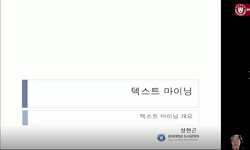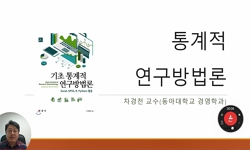Purpose: This study aims to provide insight into the contemporary food waste issue for the better management of food waste in large quantities in Incheon, one specific region in Korea, based on the analysis of the Naver Blog corpus, employing analysis...
http://chineseinput.net/에서 pinyin(병음)방식으로 중국어를 변환할 수 있습니다.
변환된 중국어를 복사하여 사용하시면 됩니다.
- 中文 을 입력하시려면 zhongwen을 입력하시고 space를누르시면됩니다.
- 北京 을 입력하시려면 beijing을 입력하시고 space를 누르시면 됩니다.
https://www.riss.kr/link?id=A108987215
- 저자
- 발행기관
- 학술지명
- 권호사항
-
발행연도
2024
-
작성언어
-
- 주제어
-
KDC
325
-
등재정보
SCOPUS,KCI등재
-
자료형태
학술저널
-
수록면
129-140(12쪽)
- DOI식별코드
- 제공처
-
0
상세조회 -
0
다운로드
부가정보
다국어 초록 (Multilingual Abstract)
Design/methodology/approach: In order to achieve the aforementioned objectives, the current study has employed the R program for the analysis (e.g., TF, tf-idf, correlation, and LDA) of 868 Naver Blog posts which included information about food waste, and/or garbage produced in bulk by foodservice operators in the context of Incheon.
Findings: The frequently addressed keywords in the dataset include food, waste, garbage, processor, workplace, food waste dewaterer, microorganism, pulverizer, plastic, compressor, restaurant, sink, cafeteria, and bean sprouts. The correlation analysis demonstrated that waste is largely generated by food material, and food material is closely related to specific types of private companies (e.g., cafeterias) and public places (e.g., military bases, prisons, hospi-tals). The LDA identified three topics: the implications for food waste produced by the workplace, recent equipment and technologies used for food waste processing, and effect of waste on the environment and call for remedies.
Research limitations/implications: While this study has shed light on contemporary issues in relation to food waste in Incheon, it is suggested that the involved parties in the waste management industry pay more attention to the development of effective waste management strategies by hospitality operators in a specific region.
Originality/value: This study responds to a lack of understanding underpinning foodservice operators who produce a large quantity of food waste in Incheon, albeit much attention has been paid to some recent research on food waste.
Purpose: This study aims to provide insight into the contemporary food waste issue for the better management of food waste in large quantities in Incheon, one specific region in Korea, based on the analysis of the Naver Blog corpus, employing analysis techniques including text mining and LDA topic modeling.
Design/methodology/approach: In order to achieve the aforementioned objectives, the current study has employed the R program for the analysis (e.g., TF, tf-idf, correlation, and LDA) of 868 Naver Blog posts which included information about food waste, and/or garbage produced in bulk by foodservice operators in the context of Incheon.
Findings: The frequently addressed keywords in the dataset include food, waste, garbage, processor, workplace, food waste dewaterer, microorganism, pulverizer, plastic, compressor, restaurant, sink, cafeteria, and bean sprouts. The correlation analysis demonstrated that waste is largely generated by food material, and food material is closely related to specific types of private companies (e.g., cafeterias) and public places (e.g., military bases, prisons, hospi-tals). The LDA identified three topics: the implications for food waste produced by the workplace, recent equipment and technologies used for food waste processing, and effect of waste on the environment and call for remedies.
Research limitations/implications: While this study has shed light on contemporary issues in relation to food waste in Incheon, it is suggested that the involved parties in the waste management industry pay more attention to the development of effective waste management strategies by hospitality operators in a specific region.
Originality/value: This study responds to a lack of understanding underpinning foodservice operators who produce a large quantity of food waste in Incheon, albeit much attention has been paid to some recent research on food waste.
목차 (Table of Contents)
- Ⅰ. Introduction
- Ⅱ. Theoretical Background
- Ⅲ. Methods
- Ⅳ. Results
- Ⅴ. Discussion and Conclusion
- Ⅰ. Introduction
- Ⅱ. Theoretical Background
- Ⅲ. Methods
- Ⅳ. Results
- Ⅴ. Discussion and Conclusion
- Acknowledgment
- References
동일학술지(권/호) 다른 논문
-
- People & Global Business Association
- Raden Johnny Hadi Raharjo
- 2024
- SCOPUS,KCI등재
-
- People & Global Business Association
- Ahmad Nasser Abuzaid
- 2024
- SCOPUS,KCI등재
-
- People & Global Business Association
- Filipos Ruxho
- 2024
- SCOPUS,KCI등재
-
- People & Global Business Association
- Akbar Pratama Kartika
- 2024
- SCOPUS,KCI등재






 KCI
KCI 스콜라
스콜라






